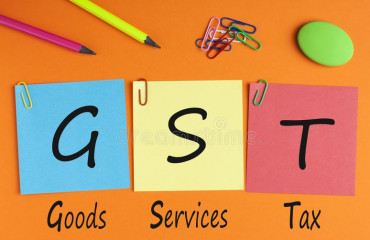
Compensation to states for lower-than-promised revenue growth under the GST system may be discussed at the GST Council meeting. Opposition-ruled states such as Kerala and Chhattisgarh are likely to raise the issue.
Compensation to states for lower-than-promised revenue growth under the GST system may be discussed at the GST Council meeting. Opposition-ruled states such as Kerala and Chhattisgarh are likely to raise the issue.
 Premium
PremiumCompensation to states could be a focal point at the GST Council meeting. Opposition-ruled states have been pressing for continued compensation due to lower-than-promised revenue growth under the GST system. Although not officially on the agenda, finance ministry officials anticipate some state finance ministers, such as Kerala and Chhattisgarh, to raise the issue during the discussions, The Telegraph has cited. These states have been experiencing revenue losses, and their representatives are likely to seek solutions during the allotted time.
In 2017, India introduced the Goods and Services Tax (GST) regime. The central government promised the states a 14% revenue growth for five years by levying a cess on luxury items. Although the compensation stopped in June 2022, the council agreed to extend the cess till March 2026 to repay loans due to revenue shortfall.
To address reduced revenue collections during the pandemic, the Centre borrowed ₹2.69 lakh crore in 2020-21 and 2021-22, which was then allocated to states to cover their GST collection shortfall.
As per The Telegraph, officials said the Council should start deliberating on whether to continue collecting the cess beyond March 2026 and if so, how to share it with the states.
50th meeting of the GST Council tomorrow
The upcoming 50th meeting of the GST Council, slated for July 11, will cover a wide range of crucial topics. One of the key issues to be addressed is the taxation of online gaming. A group of state finance ministers has left the decision to the Council on whether GST should be imposed at a rate of 28% on the full face value of bets or on the gross gaming revenue.
Another important matter on the agenda is the tax treatment of non-fried snacks such as papads and kachris. Currently taxed at 18%, there is a proposal to either grant them full exemption from GST or impose a reduced rate of 5%.
Additionally, the Council is expected to discuss the taxation of multi-utility vehicles (MUVs) and clarify whether they should be treated on par with sports utility vehicles (SUVs) in terms of tax implications.
The meeting will also address the issue of GST exemption on the import of certain cancer drugs, specifically Dinutuximab. The GST fitment committee has recommended exempting this medicine, which costs ₹36 lakh, as patients and families often rely on external funding to purchase it.
Furthermore, the Council may provide clarity on the tax rate applicable to food and beverages served at cinemas. There is a need to determine whether it should be taxed at 5% or 18%, as some multiplexes have been following different practices.
